Cutting off a toxic friend is a big step. Going through a friendship breakup (especially with someone toxic) can be just as hard as going through a breakup with a boyfriend or girlfriend. But sometimes ending a friendship is the only way to save your sanity and mental health. Like with romantic relationships, it’s important to make sure you’re getting what you deserve from your friends and that you’re never settling for anything less. But there are so many elements involved. What are the signs of a toxic friend or how do you know for sure your friend is toxic? How do you cut off a toxic friend that you’ve known forever? Should you ghost them? Have a heart to heart talk? Or should you try and salvage the friendship?
We’ll touch on all of those questions in this ultimate guide. Also! I created a free printable to help you measure how healthy or unhealthy your friendship is. Click here to download it. Now without further ado—let’s go over the definition of a toxic friend.
Toxic Friend Meaning
Toxic is defined as “poisonous or very harmful in an insidious way.” If you’re unsure what the definition of insidious is, it’s: “proceeding gradually and subtlety.”
Gradual. The friendship starts off so great, that you ignore the early warning signs of a toxic person. As you two get closer and you let more of your guard down, your friendship slowly turns abusive.
Subtle. A toxic friend can move through your life like a quiet storm. Both their behaviour and the impact of their behaviour can be easy to miss or hard to interpret.
“READING [SADIE’S FAVORITE] IS AN EMOTIONAL ROLLERCOASTER.” -BETA READER
Sadie’s Favorite by BPD Beautiful creator Sarah Rose is a novel that tells the story of a girl lost, a woman recovered and the trauma in between.
Signs of a Toxic Friend:
a toxic friend…
- secretly wants to see you fail.
- sees you as competition.
- wrecks havoc on your life and drags you down with them.
- ruins your self esteem or comes between your other relationships.
- guilt trips or otherwise manipulates you.
- makes you question yourself or your goals.
- uses you as a way to meet other people.
- embarrasses or demeans you in public.
- gossips or spreads rumors about you.
These are some of the general signs of a toxic friend as well as some of their motives. But because of a toxic person’s subtlety, it can be hard to pinpoint if the above signs actually fit your friend or not. Most toxic people go to great lengths to hide their true colours and their manipulation can make you question yourself, even further complicating the process.
So I’ve listed more specific signs to help you figure out if it’s time to cut this friend loose.
[Even More] Signs of a Toxic Friend
Think of the way your friend speaks, reacts and behaves around and with you. Do they fit any of the signs below?
1. They don’t acknowledge the important parts of your life.
2. They always seem to come around when things get tough but they offer little to no support when you talk about your struggles.
3. Or vice versa, they only come around when things are going well and disappear when you’re in need of help.
4. They don’t congratulate you or otherwise acknowledge your successes.
5. They spend more time talking about themselves and rarely ask about you.
6. They don’t respect your relationship or other friend’s, or even ex-friend’s, relationships. This includes respecting your significant other.
7. They keep you waiting, even when they know you’re in a time crunch. And they almost never wait for you.
8. You’ve been friends with them since you were kids. And you had a volatile friendship during your childhood.
9. In addition to the above, your friendship was mostly orchestrated and maintained by your parents, even after you were both old enough to make your own plans and friends.
10. They laugh off your worries or issues and make them out to be no big deal.
11. They get angry when you bring up a problem you have with them. In general, they’re easily defensive and frequently take things the wrong way.
12. They ask for favours or money and never reciprocate the generosity.
13. They rarely, if ever, say “thank you,” “please” or “I’m sorry.”
14. They expect you to be there for them whenever they need it, but don’t come through when you need them.
15. They talk down to you or otherwise treat you as though you’re inferior.
16. They’ve caused minor or major unwanted shifts or changes in your life, directly or indirectly. In other words, when everything turns to shit—somehow they’re involved.
17. They’re all of sudden “super close” with a family member, coworker or another friend of yours that you introduced them to only once or twice. Bonus points if your friend kept this new friendship a secret. Double bonus if it’s happened with multiple people.
18. They call you “dramatic,” “overly sensitive” or “crazy.”
19. They have a history of copying you when it comes to hair, personal style, career path, relationships, etc.
20. They don’t respect your request for space.
21. They ditch you during social events or leave to go somewhere “more fun.”
22. They pressure you to drink more or get into dangerous situations. Or they encourage you to keep other toxic people in your life.
23. They say what you want to hear and may even apologise but their words are rarely backed up with action.
24. They constantly complain and rarely have anything positive to add to the conversation.
25. They don’t empathise with mental illness and you suffer with it.
They don’t have to fit all of the signs to have a negative impact on you. Keep reading for more signs of a toxic friend and how to start the friendship breakup process.
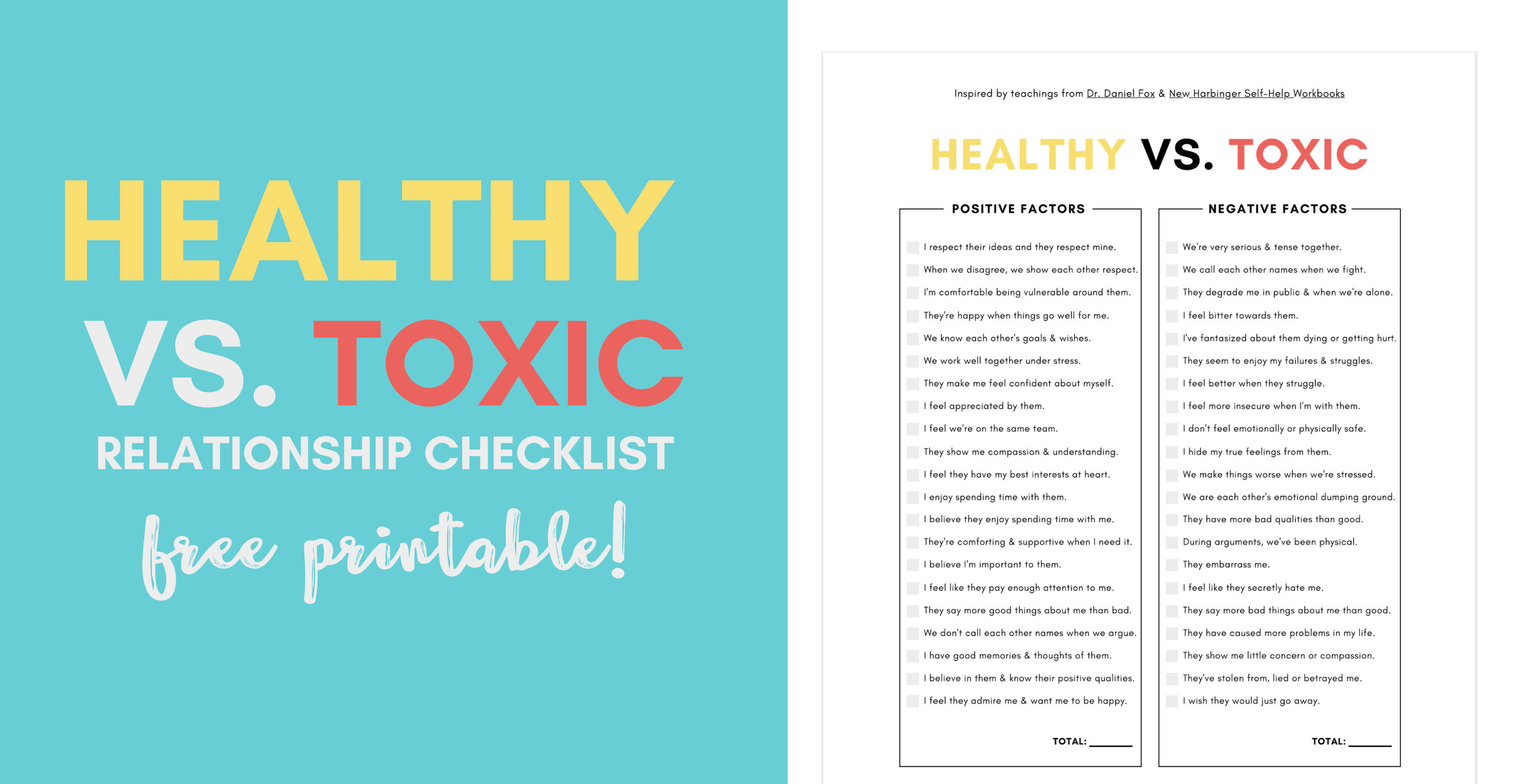
DOWNLOAD FREE PRINTABLE
Measure how healthy or unhealthy your BPD relationship is with the Healthy vs. Unhealthy Relationship Checklist.
Signs Your Friendship is Bad For Your Mental Health
Now think of how you react, feel and behave with your friend. Do you relate to any of the following?
1. You feel a sense of dread when it’s time to hang out with them.
2. You feel uneasy when they’re around your significant other or people you admire and respect.
3. You feel drained after spending time with them or talking to them.
4. You don’t feel comfortable expressing your opinions or inner feelings around them.
5. Your life seems darker or more chaotic since they’ve been in it or whenever they come around.
6. You feel an unreasonable need to impress them or seek their approval.
7. You feel like you’re constantly in a competition with them and / or you get the sense that they’re always trying to one up you in life even though you’re not keeping score yourself.
8. You don’t like who you become when they’re around.
9. You resent them.
10. You’re frequently appalled, surprised or hurt by their behavior.
11. You occasionally think, “Things would be better between us, if only she/he….”
If you fit most of the signs above, it’s may be best to say goodbye to your toxic friend for good. Your mental health always take priority. Now the question is, how?
Ghosting a Toxic Friend
Usually, ghosting a friend is a big no no. But with a person showing signs of a toxic friend, the rules should change if it means protecting yourself from further emotional damage. Even still, the answer to this ultimately depends on the person and your friendship with them.
If you’ve already told them you don’t want to be friends anymore, and they’re now harassing you with provoking texts…go ahead and block ‘em indefinitely to end the madness and move on with your life. Feels good, doesn’t it?
If your soon to be ex friend is quick to anger, impulsive or vengeful…or if there a possibility of you getting into danger by talking to them—then you should do whatever you have to do to stay safe.
That might involve ghosting of various kinds: blocking their number & social profiles, changing your number, quitting or requesting a transfer at your job / school, filing for an order of protection or even moving in extreme cases.
BUT if you think ghosting them will actually do you more harm then good (& it certainly can with toxic people, so tread carefully!), the below tactic might be safer.
How to Fade Out of a Toxic Friend’s Life
If emotional harm or some kind of backlash is an almost definite result of openly ending the friendship—a simple fade out could be a better way to end things and may result in less stress since there’s no confrontation with someone who lacks healthy boundaries.
- Step 1: Be “busier” more often, miss more of their calls and respond less to their texts.
- Step 2: Stop feeding their ego, need for drama or need to vent. Don’t tell them information you only tell friends—they’re no longer a friend. Don’t say anything when they brag, complain, gossip, vent or put you down. Don’t react if they tell you something meant to get a rise out of, or shock, you. If you stop feeding into their unhealthy behaviors, they’ll become more bored with the friendship and may leave on their own (score!).
- Step 3: Stop all unnecessary communication. Don’t be the first to reach out, unless it’s absolutely needed. Stop or greatly reduce your comments on their social posts. Make separate plans with mutual friends and if you can, avoid gatherings where your ex friend will be. Request class or project transfers if you go to school or work with them (figure out a solid excuse ahead of time to have ready in case they ask why you’ve transferred).
- Step 4: Do not tell any of your mutual friends your feelings about this friend or your fade out plans. If you need an emotional outlet, save that for people outside of this toxic ex friend’s circle. You don’t want to make yourself look bad, risk alienating yourself from your mutual friends and possibly make things worse for yourself.
Depending on how often you regularly kept in contact with or see your soon to be ex friend, a fade out could happen over the course of a month or up to a year or more.
If You’d Rather Have One Last Talk or If They Confront You
Keep it short, simple and polite. Don’t bog your words down with emotions. Don’t over explain your side or reasoning. Don’t accuse them of anything even if they’re at fault. Don’t apologise.
If you can and you feel it’s for the best, say what you have to say through text.
Here’s a template to use as a base for telling your friend you don’t want to be friends anymore:
“Hey NAME, this decision wasn’t easy but I’ve realised recently our friendship isn’t healthy or good for either of us. I don’t want to be friends anymore. I know this is the best decision for us both. Good luck with everything. I wish only good things for you.”
Just a warning…if you go this route, prepare ahead of time for backlash or a guilt trip. In the moment, remember it’s best to keep things short and unemotional. Skim their texts or only half listen if you’re in person. This could help stop you from feeling inclined to give an emotional response. If a text war ensues or they attempt to start an argument, block them/leave and start the ghosting process. Fighting back only pours fuel on the fire.
Remember you won’t change them. People can only change themselves.
If your ex friend notices your fading out and confronts you, you have several options:
Option 1. Revise the template above to fit the situation and be honest while also following the “rules” in the first paragraph.
Option 2. Find an excuse for why you’ve been so busy, then continue your fade out until they get bored with you or take the hint.
Option 3. If your toxic ex friend is being verbally abusive or threatening, don’t respond and / or reach out for help.
You know your ex friend better than any blog post could, so pick an option based off their past behavior and which you believe would result in less emotional abuse or negative impact on your mental health.
BPD RESOURCES
See more resources for BPD including books, 1-on-1 coaching, printables and other recovery content here.
START A DISCUSSION
And there you have it! A complete guide to cutting off toxic friends. I hope this was helpful for you. Feel free to vent about your toxic friend or ask for personal advice in the comments.
PIN THIS POST
Liked this post? Please help out the blog by pinning it on Pinterest or sharing it on Facebook.
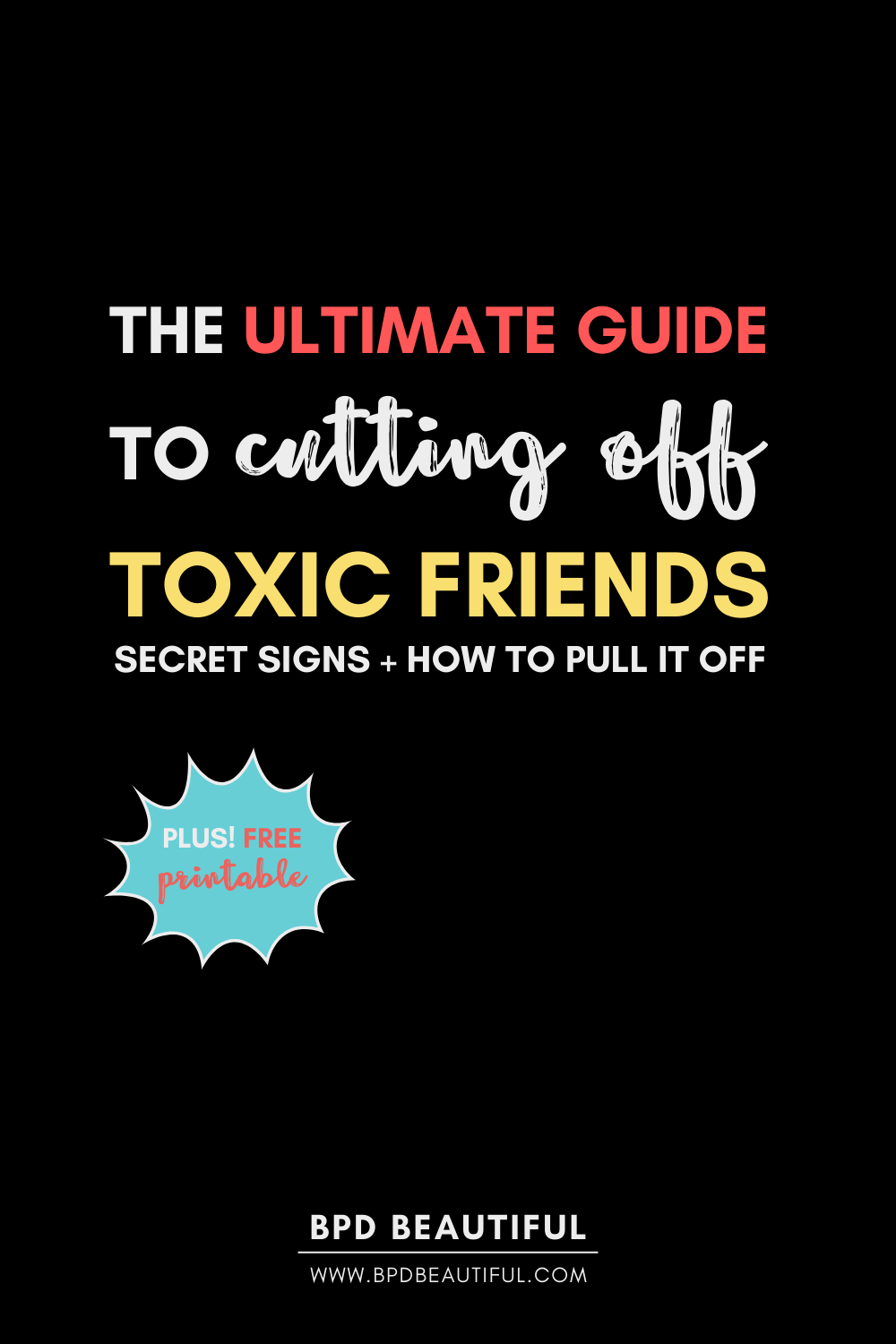

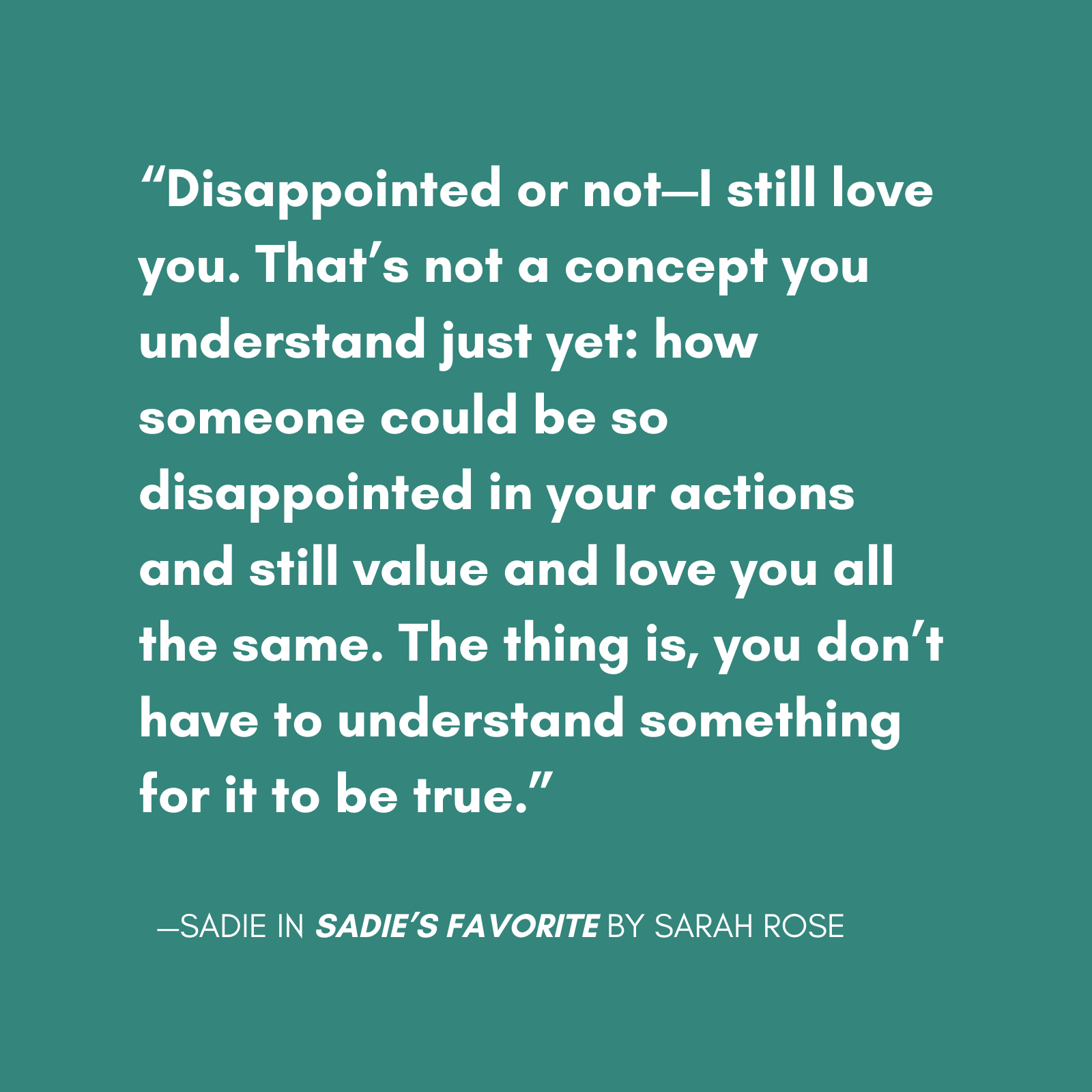
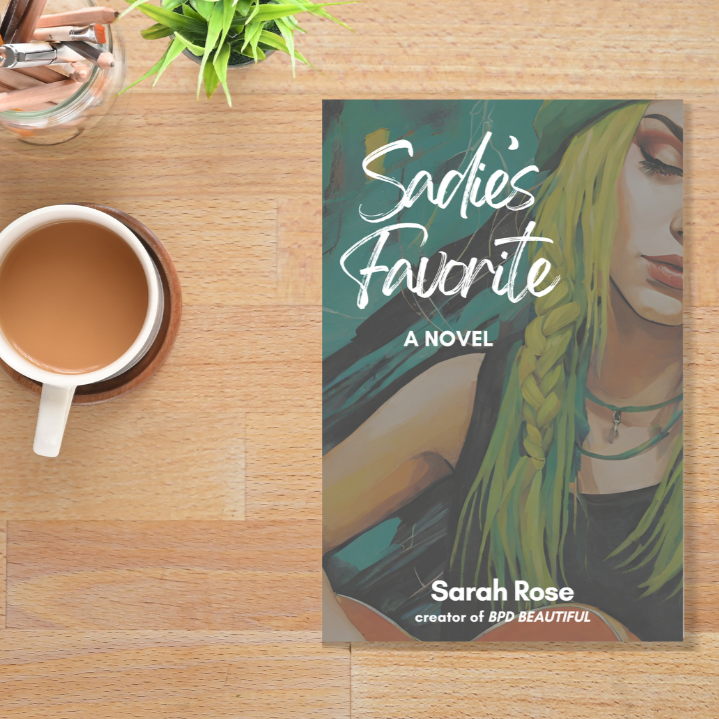
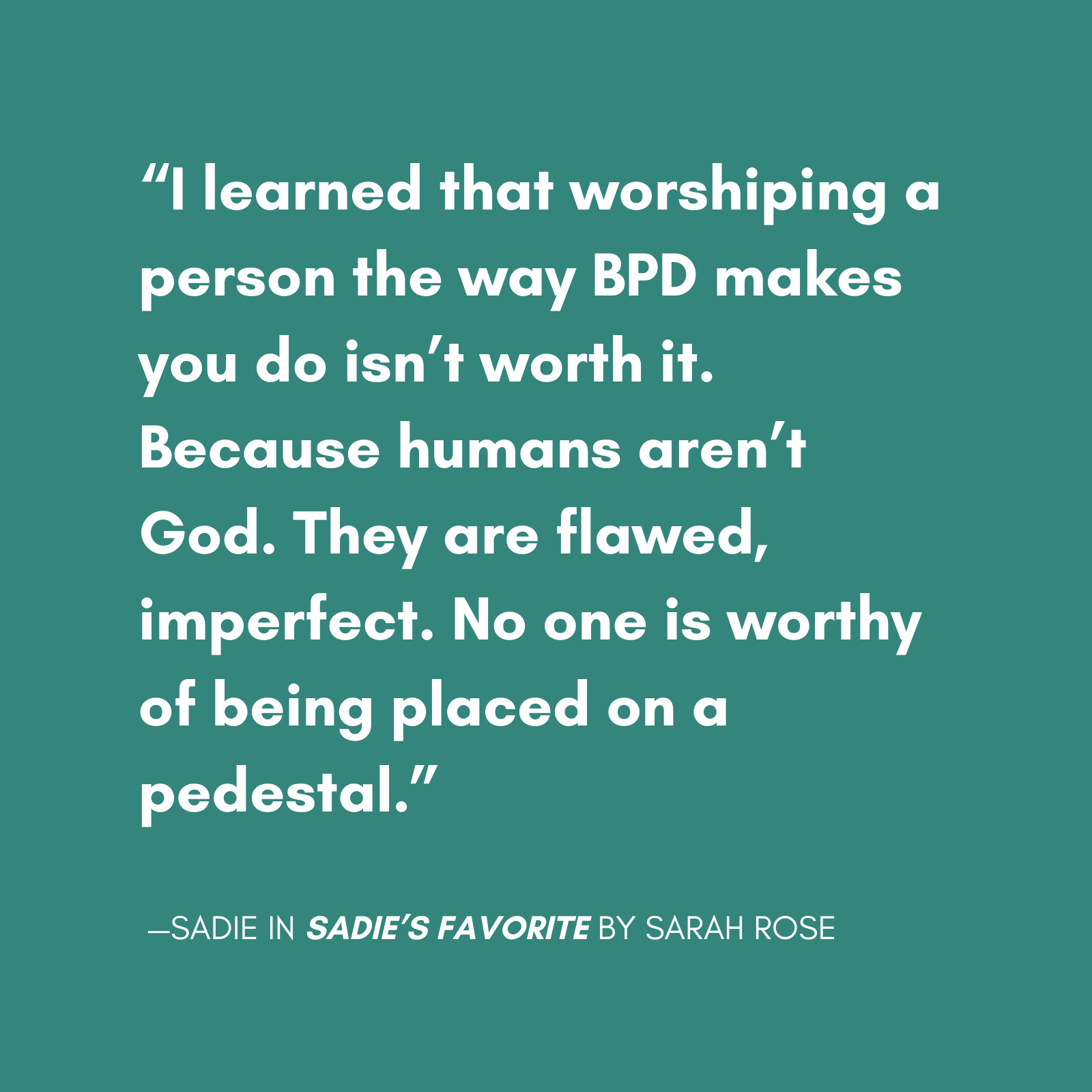

Comments
2 responses to “Ultimate Guide to Cutting off Toxic Friends: Signs of a Toxic Friend + How to Pull off a Friendship Breakup”